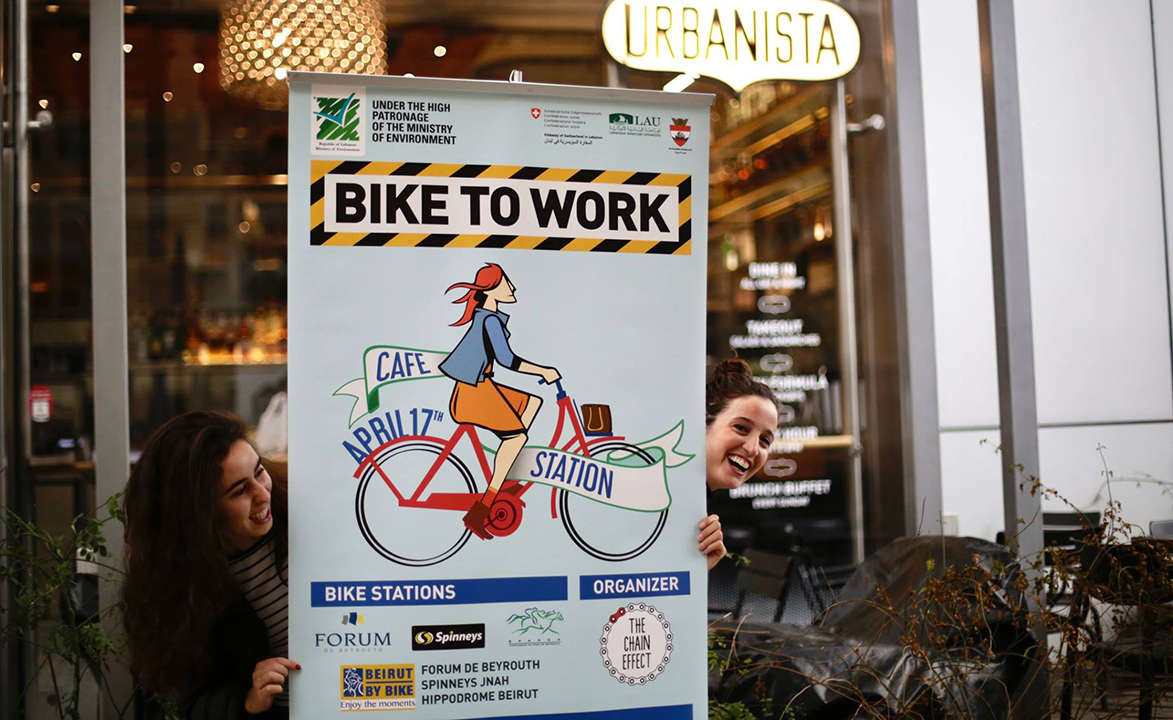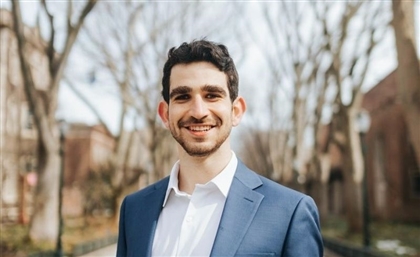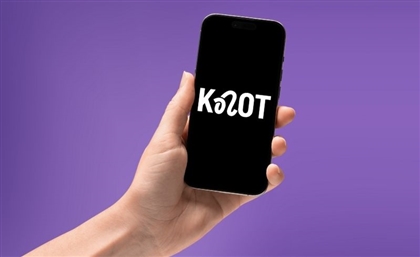The Lebanese Are Biking To Work On April 17th
16 percent of productive time is killed on roads and 70 percent of travel time is wasted in traffic, but The Chain Effect wants to turn things around.

Hundreds of Lebanese workers will be cycling to work on April 17th as part of the annual Bike To Work day, for the third year in a row, organised by The Chain Effect, a grass-rooted cycling initiative, that has collaborated with the Ministry of Environment, Swiss Embassy, and the Lebanese American University.
About 600,000 cars enter and roam the Lebanese capital every day, with private vehicles occupying 83% of the transport modal share. According to a white paper by The Chain Effect, 16% of productive time is killed on roads and 70% of travel time is wasted in traffic. Car-centric planning and culture in Beirut costs the economy $2.1 billion in yearly losses, contributes to high emissions from transport - which is 1.4 times more than world average.
As engaging companies was not part of the campaign in 2017, The Chain Effect noticed this year that despite the skepticism from some, many companies were very enthusiastic and supportive of the idea and of incorporating this into their social or environmental profile. Several companies such as Bank Audi, Leo Burnett and BLC Bank organised their own internal campaigns and media ads for the event, as well as videos to highlight the participation of their staff. Some also made special arrangements for bicycle parking on premises.
"There are people who bike to work every day already," The Chain Effect's Co-founder Elena Haddad tells Startup Scene. "My physics professor in high school (about 12 years ago) used to cycle every day from Saida to Badaro - he was a real inspiration."
On April 25th 2018, around 650 people participated in Bike To Work day in Beirut and Tripoli. Participation data shows that participants are divided nearly equally between men and women. 80% of them are between 18 and 30 years old, signaling large participation from university students and young professionals. After Bike To Work’s first activation, 65% of participants considered cycling more regularly for transport.
Organising a one-day event provided a practical context for people to try cycling to work in a facilitated, safe, fun and guided manner."I think with every year that passes, we are slowly breaking the misconception that bicycles are only used for leisure," Haddad adds. An event on such a large scale also sparked the conversation on current “bikeability” and cycling perceptions in the city, as well as the need for more private and public sector investment into active travel.
Like its Middle Eastern counterparts, Lebanese cities aren’t bike-friendly. However, during Bike To Work day, The Beirut Municipality usually support the campaign by providing 3.5 kilometres of barriers to set up temporary cycle lanes leading from the three park and ride stations to the downtown area.
Trending This Month
-
Jan 19, 2026




















